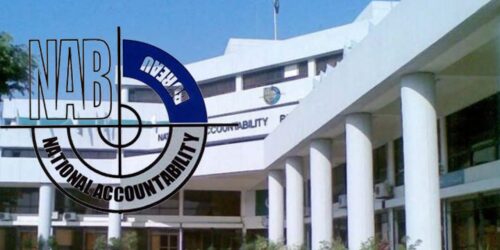oliticians and bureaucrats have shown mixed view over the fate of the National Accountability Bureau (NAB), as some suggest its abolition while other recommend necessary amendments to the law to ensure transparency in the accountability process.
Some senior government functionaries and a number of federal ministers have closed ranks for the abolition of NAB over its alleged use to intimidate bureaucracy, victimise political opponents and harass the business community.
However, a group of top officials and cabinet members opposed shelving the graft buster and recommend to make amendment to the NAB Ordinance to bring transparency in trial process and setting up a commission to investigate cases of NAB’s injustice and human rights violations.
During a recent federal cabinet meeting, the law and justice minister highlighted that the NAB Amendment Ordinance, 2021, was set to expire on June 2, and under the Constitution it could not be extended any further. He added that it was an opportune time to revisit the amendments.
The cabinet members were unanimous in observing that NAB had only served as a tool of harassment rather than accountability. The graft buster had been used to victimise political rivals, intimidate the bureaucracy and harass the business community.
The ministers noted that NAB had serious capacity issues and accused it of being “guilty of frequent human rights violations”. They said that the treatment meted out to politicians, civil servants and eminent businessmen by the NAB officers was extremely “tormenting and demeaning”.
There were even reports of these officers bragging about humiliating the prominent personalities in private gatherings. Some of the cabinet members argued that NAB should be abolished in the presence of other accountability institutions.
READ Cabinet forms committee to amend NAB laws
In this regard the minister referred to the anti-corruption entities in the provinces Federal Investigation Agency (FIA) at the federal level, arguing that there was no need for a supra accountability body, therefore, the NAB was a redundant body.
However, others who favoured retention of NAB as an institution, advocating a holistic review of the accountability laws to amend draconian clauses after their examination at the touchstone of the fundamental rights guaranteed in the Constitution.
When the prime minister sought the view of the cabinet secretary on the matter, he replied that the issue had been discussed at length in the secretaries committee with the intent to support the government in policy making and implementation.
He also pointed out that the civil servants were fully supportive of fair and transparent accountability, unfortunately, the NAB had not only been questioning their decisions taken in good faith without any proof of financial corruption but also those made by the collective wisdom of the cabinet and its committees.
Such indifference towards Executive Authorities Had exposed the civil servants to palpable risk, the secretary said. Against this backdrop, the secretaries committee had formulated its recommendations for amendments to the NAB law, which were submitted to the former prime minister. He offered to resubmit the recommendations to the prime minister.
Seven federal secretaries present in the cabinet meeting were also given the opportunity by the prime minister to express their views. There was consensus amongst them that the decision-making had been stymied and that there should be protection against the actions taken in the earnest.
Some of the representatives of the bureaucracy also supported abolition of NAB, , while others backed the proposal for constituting a committee, with representation from businessmen, bankers, lawyers and bureaucracy, to review and amend the NAB laws.
The cabinet decided to hold consultation with cabinet members and reach out to eminent businessmen, bankers, jurists, human rights experts, and other stakeholders before firming up their recommendations.







